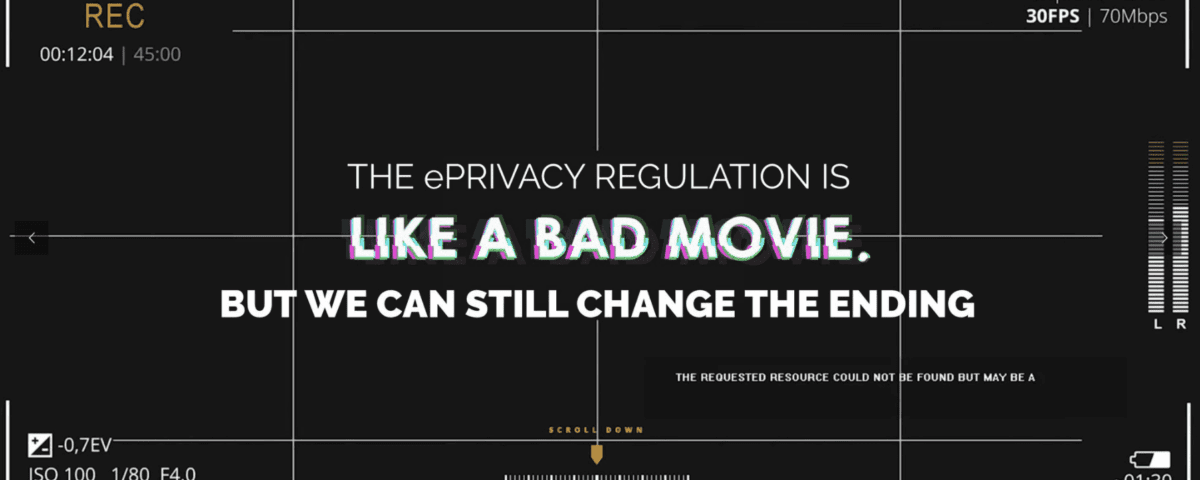The ePrivacy Regulation Can Turn Online Experience into “A Bad Movie”

The draft version of ePrivacy Regulation is aimed to reinforce trust and security in the Digital Single Market as well as to make it easier for European consumers to manage their privacy online. However, the current legislative proposal by the European Commission could instead damage the everyday experience of European users with less free content and services, fewer media diversity, less innovative application and more confusion with a constant need to grant consent for sharing data.
FEDMA, together with trade associations from the advertising sector, wanted to communicate to policy markers the role of advertising in the digital economy, and the importance of having a balanced legislative framework. The campaign #LikeABadMovie demonstrates the potential impact the ePrivacy Regulation could have with 4 trailers, showing how the digital world could change for consumers under the future legislation:
- App-ocalypse
The tech startups behind some of the world’s best apps often rely on data-driven ad revenue to offer their apps for free and scale up their companies. Without it, their business model basically falls apart. Less revenue will mean fewer startups and eventually fewer apps for consumers. - Wake up. Pay up
Europeans prefer to access content and services for free, but without revenue from data-driven ads free stuff will be in severely short supply. From one day to the next, consumers could be in for a rude awakening that requires them to pay up or be left in the cold. - True or False?
Data-driven ad revenue helps make high quality journalism possible. With that revenue diminished, funding for a wide choice of media content will be squeezed. Many independent publishers will start to downsize, and some may even disappear making it more difficult to hold power to account. For the consumer this means far fewer independent sources of information and less diversity of opinion. - Mr Happy
The proposed reforms to the ePrivacy Regulation would require consumers to set their privacy settings for every website, in every browser and on every device they use. Bombarded with questions, consumers will find themselves exhausted, confused and unsure what “granting consent” actually even means.
The campaign also includes an alternative ending, showing which measures are needed to prevent a negative impact of the regulation on the European users. The industry suggests policymakers to alleviate the damage by including other grounds for data-processing (e.g. legitimate interest), by encouraging better informed consumers, and by aligning the text with General Data Protection Regulation (GDPR).
More information is available on the website on the campaign – http://www.likeabadmovie.eu/ and on social media by the hashtag #LikeABadMovie.

